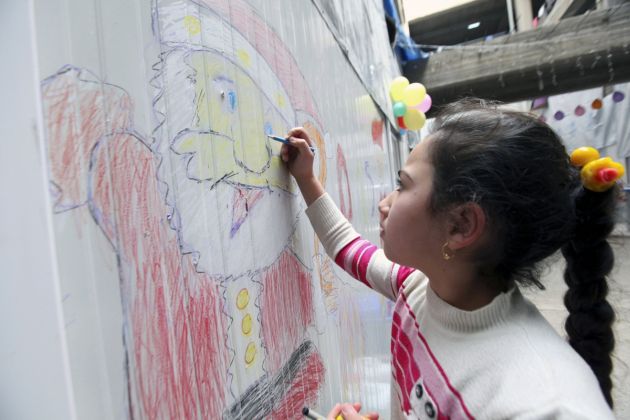Funds running out for Iraqi Christians in Jordan, says refugee official

Funds sustaining thousands of displaced Iraqi Christians in Jordan are drying up with an official warning that the humanitarian crisis could get even worse in the coming months.
Relief workers are struggling to provide food and shelter for more than 7,000 Iraqi Christian refugees who sought refuge in nearby Jordan after the Islamic State drove them from Mosul and Nineveh, Syriac Catholic priest Noor Alqasmosa said.
In charge of providing assistance to refugees, Alqasmosa fears that Iraqi Christians could battle to find a new place to start their lives anew, with some countries prioritizing other refugees.
"We have Caritas funding lasting just until the end of February to help the 7,000 Iraqi Christians in Jordan," the priest told the Catholic News Service.
The dire situation has rubbed off among the refugees themselves, the priest noted, he described the outlook for some Iraqi Christians he interacts with at the refugee center.
"There is no hope among the people. They believe the world has abandoned them and are leaving them to die," he said,
The prospects of Iraqi Christians returning to their homeland remains slim as the Islamic State continues to wrest control of several areas in Mosul and nearby locations.
Since June last year, extremists have driven away Iraqi Christians, forcing them to either convert to Islam, stay or leave their homeland.
The persecution of Christians in Iraq has been widely condemned from the West, but a solution to their plight remains elusive.
Another problem that bothers the refugees is the prospects of them trying to start anew in a different country, according to the Catholic official.
"I was shocked when I was told that neither the U.S. nor the EU would take in Iraqi Christians from Mosul and Ninevah for resettlement," said the priest.
"We had everything in Mosul and left with nothing," the Iraqi priest lamented after recent talks between U.N. and foreign government officials in the Jordanian capital further dimmed the refugees' prospects of migrating elsewhere.